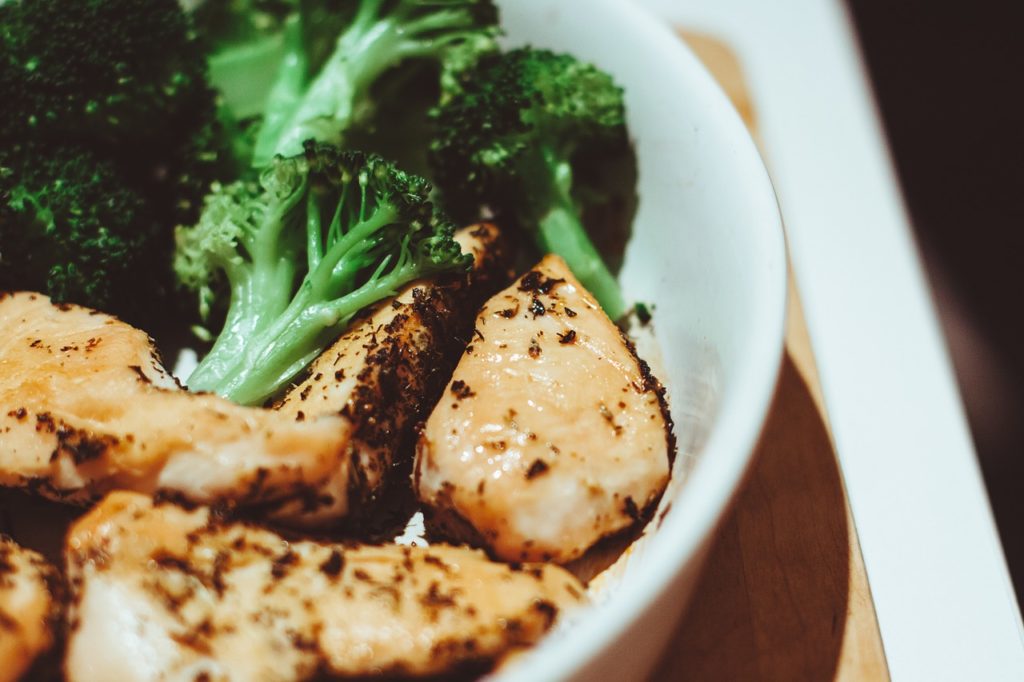 Gastroesophageal reflux disease (GERD) is characterized by a defective anti-reflux barrier at the gastroesophageal junction, which allows stomach acid to escape back up the esophagus. It affects the entire digestive tract and can cause issues ranging from heartburn and persistent cough to esophagitis, ulcers, and cancer. There are many medications and treatments for GERD, depending on the severity of the disease. Making a few deliberate dietary changes is one of the more simple steps a person who suffers from GERD can take to help lessen these effects.
Gastroesophageal reflux disease (GERD) is characterized by a defective anti-reflux barrier at the gastroesophageal junction, which allows stomach acid to escape back up the esophagus. It affects the entire digestive tract and can cause issues ranging from heartburn and persistent cough to esophagitis, ulcers, and cancer. There are many medications and treatments for GERD, depending on the severity of the disease. Making a few deliberate dietary changes is one of the more simple steps a person who suffers from GERD can take to help lessen these effects.
There are many foods that can increase the production of stomach acid, which in turn amplifies the symptoms of GERD. Some common trigger foods for GERD sufferers are fatty foods, spicy foods, citrus fruits, and caffeine. In addition to other lifestyle changes and medical treatments, avoiding trigger foods can help reduce the effects of GERD. The following items are good options for people who suffer from acid reflux.
Green Vegetables
Green vegetables such as broccoli, asparagus, leafy greens, peas, cucumbers, and Brussels sprouts are known to prevent and alleviate acid reflux. In addition to being very low in fat, these vegetables are also high in alkaline content. The low pH offsets the high pH of the stomach acid.
Vegetables, in general, are often a good option for those who suffer from GERD, with the notable exception of garlic and onions, which are known to worsen the effects. It is also important to bear in mind how the preparation of vegetables may affect stomach acid. For example, butter and margarine are usually high in fat; using them to saute vegetables may worsen acid reflux symptoms.
Fiber
High-fiber foods such as fruits, vegetables, and grains reduce acid reflux due largely to fiber’s qualities as a digestive aid. Fiber, among other things, absorbs liquid in the digestive system, which prevents the displacement of stomach acid. For this reason, sources of soluble fiber, such as oatmeal, barley, and beans are especially beneficial (as opposed to sources of insoluble fiber, such as whole wheat, corn, and nuts).
Low-Acid Fruits
Acidic foods exacerbate stomach acid even further. Many foods that are high in acid content are citrus fruits, such as lemons, oranges, and pineapples, which contain citric acid. Tomatoes are another high-acid fruit which can worsen acid reflux due to high levels of both malic and citric acid. Some low-acid fruit alternatives which do not particularly aggravate acid reflux are melon, banana, and coconuts.
Lean Protein
Protein is a vital part of a healthy diet. However, many common sources of protein are also high in fat content, which exacerbates acid reflux by slowing the digestive process, causing the digestive system to build up more acid. Common sources of fatty protein are fatty meats, such as red meats. The cut of the meat is also a factor, as some parts of the animal will naturally be fattier than others. Some of the best options for lean protein are fish and skinless poultry.
Healthy Fats
While fats can worsen GERD symptoms, there are also healthy fats found in foods such as avocados, walnuts, and olive oil which can have beneficial effects. While they are still best consumed in moderation for GERD-sufferers, healthy fats may reduce inflammation and hunger. Therefore, healthy fats may help improve inflammation produced by irritation in the digestive lining.
Complex Carbohydrates
Although a diet high in carbohydrates can worsen acid reflux due to increased digestion time, carbohydrates are a necessary part of a balanced diet, and should not be avoided completely unless you are advised to do so by a doctor. The best option for people who suffer from acid reflux is to consume moderate amounts of healthy complex carbohydrates (as opposed to simple carbohydrates).
Although complex carbohydrates are actually digested more slowly than simple carbohydrates, they also tend to have a higher fiber content and control hunger more effectively. As previously mentioned, fiber helps reduce acid reflux symptoms, while hunger management prevents stomach acid displacement and the urge to eat constantly throughout the day (which would cause more acid to be produced over the course of the day). A few common examples of healthy complex carbohydrates are oatmeal, beans, brown rice, sweet potatoes, and quinoa.
Additional Dietary Modifications to Control Reflux
Beyond dietary choices, there are also many other simple lifestyle changes a GERD sufferer can make in their day-to-day life to reduce symptoms.
- Chew Gum: Chewing gum stimulates the salivary glands. More saliva can dilute acid in the esophagus and encourage more swallowing.
- Avoid Eating Immediately Before Bed: Your body produces more stomach acid every time you eat. Therefore, it is best to avoid eating before bed because being in a horizontal position causes stomach acid to settle closer to the esophagus. Additionally, it can be beneficial for many people with GERD to prop themselves up in bed for this same reason.
- Keep Good Posture During and After a Meal: As stated, the position of your body can displace stomach acid. Even if you do not plan to go to bed anytime soon, it is still a good idea for those with GERD to sit or stand up straight following a meal. This helps ensure that pressure on the stomach or angled posture will not displace the additional acid created by eating.

